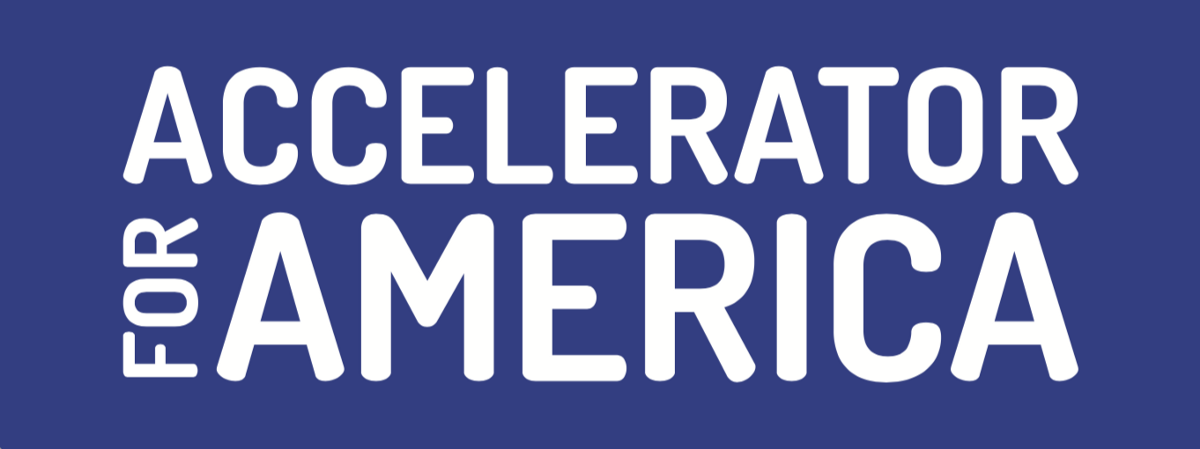Route Fifty: ‘All Kinds of Opportunity Here’: Will the Pandemic Help Improve the Way Cities Operate?
SEPTEMBER 18, 2020 | Bill Lucia, Senior Reporter
The virus brought about sudden changes to the way cities do business, some of which could stick. Local government leaders discussed this and other ways cities might transform during the final day of Route Fifty's Future Cities event.
The coronavirus pandemic is forcing state and local governments across the country to rethink how they deliver services and manage employees, with many jurisdictions adopting new technology and allowing more of their staff to work remotely.
Now, with the initial shock of the virus outbreak passed, some government leaders and experts are weighing how the disruption caused by the public health crisis might lead to more lasting changes that could improve how states and localities operate.
"There's all kinds of opportunity here to do the things that were difficult to do in the past,” Patrick Duhaney, city manager of Virginia Beach, Virginia, and until recently the city manager of Cincinnati, Ohio, said Friday during Route Fifty’s Future Cities event.
“With the pandemic it creates an opening for us to make a lot of radical change. And I think now is the time to take advantage of it while we can,” he added, as he discussed city management and administration issues. “Chaos is a ladder of opportunity.”
Duhaney joined former New Orleans Mayor Mitch Landrieu and Accelerator for America president and CEO Rick Jacobs to discuss ideas for how local governments could be transformed to run more efficiently and serve residents better.
“My ultimate dream,” Landrieu said, “is for every citizen to actually enjoy going to city hall.”
How might cities move in that direction? Many of the ideas offered up by the speakers at Friday’s event fell into three broad categories: working across jurisdictions, adopting new technology, and rethinking the way government leaders manage their workplaces and staff.
For example, Landrieu suggested that money could be saved by consolidating public water or transportation systems within a region, and he also argued that, given today’s technology, “we simply just do not need as many elected officials as we have or appointed officials.”
“It always bothered me,” the former mayor added, “how many governmental units we have that are duplicative, that we do not need.” But Landrieu also acknowledged that consolidation proposals can often trigger fights between the government entities they affect.
Jacobs raised similar issues about regionalism, noting that many of the nation’s jurisdictional lines were drawn decades ago and in some cases for reasons that are scarcely relevant today. “We have a lot of boundaries. A lot of borders,” he said.
“The problems that cities face are not bounded by funny lines on a map,” Jacobs added.
One suggestion he made is that the federal government could look for more ways to reward local governments with additional funding if different jurisdictions cooperated regionally on planning and building new transportation infrastructure, or housing.
Duhaney said that the pandemic has highlighted ways problems can arise when neighboring jurisdictions aren’t on the same page—there’s nothing necessarily stopping the virus’ spread from a place taking lax public health precautions into other nearby communities.
On the technology front, Landrieu pointed out that many Americans now expect to be able to take care of a wide variety of tasks online, or using their smartphones, and made a case that local governments could be doing a better job offering virtual services.
When localities fail to do so, he noted, it means people have to drive or take transit to complete in person transactions at government offices, an often time consuming and frustrating prospect.
The virus outbreak has drawn attention to tech shortfalls as well, according to Duhaney. "What we're finding out now is just how far behind we were compared to a lot of our peers in investing in the technology that helped us to navigate Covid-19," he said, referring to the name of the illness the virus causes.
Duhaney also explained how the virus put cities in a situation where they had to suddenly reckon with how to offer services as employees worked from home or otherwise away from traditional workplaces. He thinks this is something that will stick to some extent going forwards.
“We’re realizing it’s working,” he said.
“That’s going to be something that we’re going to have to put in the toolbox,” Duhaney added, noting that a more flexible work environment could help with recruiting younger workers.
When it comes to management, and pushing government organizations to adapt, modernize and change systems that are in need of improvement, Landrieu emphasized the importance of encouraging workers to think entrepreneurially and take risks.
“I'm going to let you fail. I want you to break the china, because I want to create a new model,” he said. “And you have to literally do that every day … You have to become a culture of change organization, as opposed to a status quo organization."
Using data to get stakeholders onboard with changes and also being transparent with residents about how decisions are being made were two other priorities that Duhaney mentioned.
Duhaney also said that, in his view, it’s important for public officials to be open, or “vulnerable,” to feedback, acknowledging that they may not know all of the answers at the outset of policy discussions, rather than acting defensive about their positions.
He said sometimes government officials have a tendency of “getting stuck on our favorite phrase: ‘well, we've always done it this way.’”
Read the full article here.

